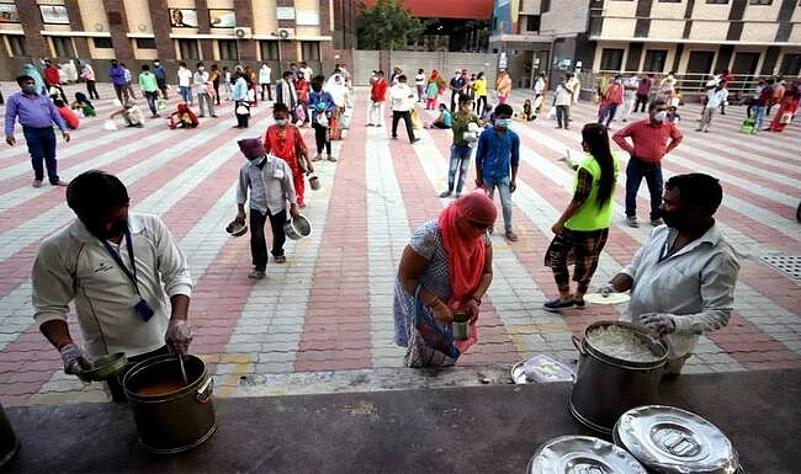Central Chief Labour Commissioner D.P.S. Negi met top executives of Indian Oil, GAIL, SBI among others to promote awareness about the e-SHRAM portal, said the Labour Ministry. The portal is an intitiative taken by the Central Government to register informal workers and further a host of social service benefits under various schemes.
According to Negi, the portal is expected to have more than 38 crore enrollments.
The central database of unorganised workers is being created in collaboration with state governments. It caters to all unorganised sector workforce such as construction workers, migrant workers, gig and platform workers, street vendors, domestic workers, agriculture workers, milkmen, fishermen, truck drivers etc. With the help of a Universal Account Number (UAN) and an e-SHRAM card, beneficiaries would be able to avail benefits under various social security schemes anywhere in the country. It further provides an Accidental Insurance cover of Rs 2 lakh.
“The States/UTs will own their data and the State/ UT Governments will primarily mobilise and register the unorganised sector workers of their respective State/UTs on the e-SHRAM Portal and this data can be utilised by the State/UT Governments for delivery of various social security schemes to unorganised workers as per eligibility”, Negi told PTI.
The COVID-19 pandemic had severly affected the informal segment of the economy, especially daily-wagers. According to the Centre for Monitoring Indian Economy, overall unemployment in August 2021 stood at 8.32%, urban unemployment at 9.78% and rural unemployment at 7.64%. As per its 30-day moving average, overall unemployment stands at 8.1% as of 10th September, 2021.
In its August report, CMIE had pointed that the loss was primarily in farm jobs. Even though non-farm jobs did absorb some of the lost labour, the non-farm jobs that came up were "...mostly not the kind that could be considered good quality jobs", the report stated. Much of the labour retrenched from agriculture went to the services sector. Industries could not soak that labour. Recurrent lockdowns meant to curb the spread of COVID-19 have kept factories in a clout of uncertainty. The reason, they have failed to emerge as viable alternate employment avenues.


























